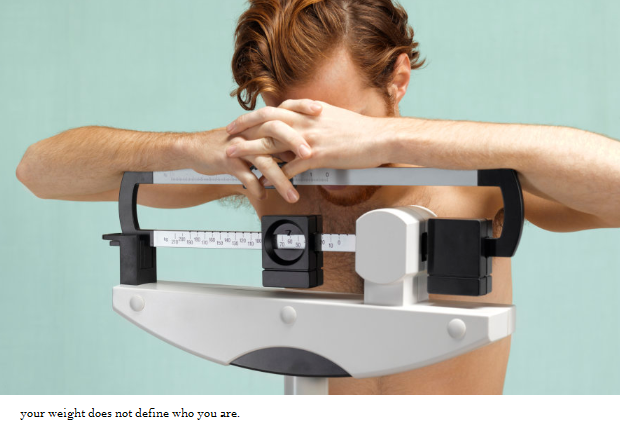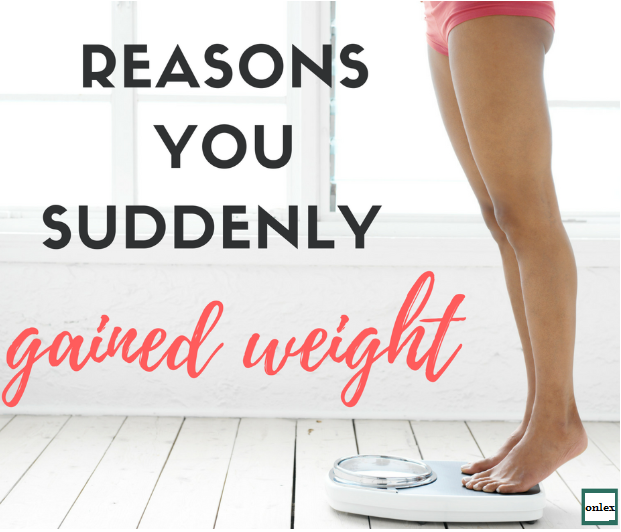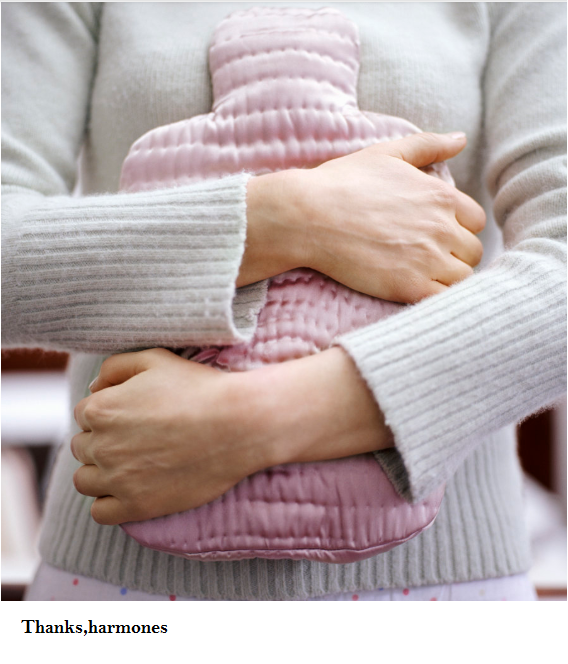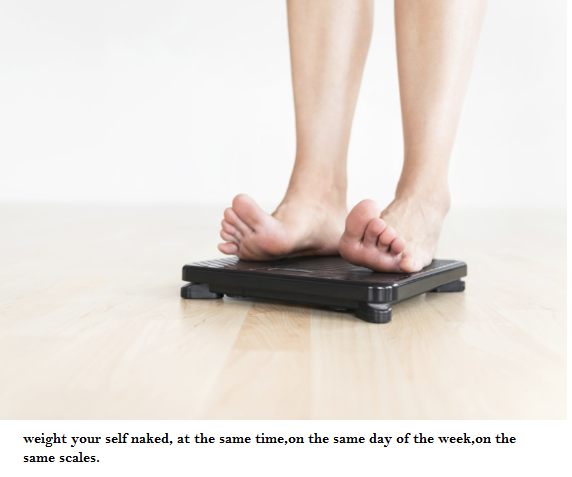6 reasons why the scales say you've gained weight
Every one ,calm down

We were all there: they weigh you one day and you feel good and fit, and do the same thing the next day and weigh three kilos more.
What is the agreement? Could you maybe not, body? Seriously, that extra slice of banana bread is really the culprit?
Do not worry, everyone. There are some reasonable explanations as to why the scales say they suddenly gained weight
"Personally, I do not recommend my clients to weigh on a daily basis and, in fact, I ask them to limit it per week or even twice a week, if they do," said nutritionist Pip Reed at Huffington Post Australia.
Self-worth should not be determined by, or dependent on, a number on a scale.
Related link:
https://medium.com/@niashanks/your-weight-doesn-t-define-your-self-worth-610f9abd7ab0
"Daily weights can create unnecessary stress, fixation, pressure and even obsession that are unhealthy for anyone."
The dietician Robbie Clark agrees, stating that weighing constantly is a misrepresentation of your true weight and can distort your sense of self-worth.
"I do not recommend my clients do this. By seeing daily fluctuations of increases and losses, it creates an overwhelming fixation and burden," Clark told HuffPost Australia.

"For some, when they become obsessed with the scale number, it becomes an indicator of their self-esteem, and if the scale shows a" good "number (lower), they feel better about themselves. failed.
"All your mood depends on a number and a whole day can lead to complete negativity and despair if you are not satisfied with what you see poised."
It is not surprising, therefore, that being constantly weighed can lead to unhealthy and obsessive eating and exercise habits.
"Focusing on weight can be detrimental to your emotional well-being, because it causes unnecessary stress, obsessed with any slight fluctuation that may not be related to the amount you're eating and exercising," Reed said.
"Scales can create a feeling of artificial confidence for some and can even crush it, especially if specific weight loss goals have been set," Clark added. "People can start judging food choices or fitness over a number on the scale, which is extremely unhealthy."

"Weighing yourself does not take into account muscle mass and growth, water retention, hormones and menstrual cycles for women and, instead, can make someone give up on a weight loss journey, they do not see the results on a daily, "said Reed.
"Not only does your weight change every day, but it also changes at different times in a single day, so it makes no sense to weigh yourself every day, and certainly not many times a day," Clark said.
Here are six reasonable explanations as to why the scales said you gained (or lost) weight all of a sudden.
1.you have gained muscle mass
If you have trained hard and leveled and seen that you have gained a few pounds (but still feel the same weight or less), it is likely that you have gained muscle mass, which is much denser than fat.
"One kilogram is one kilogram, one kilogram of muscle and one kilogram of fat weigh the same, but one takes up much less space," Clark explained.
"Muscle, by design, is denser and more fibrous in nature, as it serves to help support and move the entire body, since dense muscle tissue takes up less grease space, can weigh the same (or even more) seems thinner than another person with the same weight, height and similar structure because of the difference in the composition of his body. "

In simple terms: one kilogram of muscle takes up less than one kilogram of fat, hence the illusion of getting fat or "getting fat".
"So while you're losing weight, if you're doing exercise you're inevitably putting your muscles that will also help you speed up your metabolism, but it's possible that you do not give the full picture to the scale, since you weigh the same, or some sometimes weigh more, despite having lost fat mass, "Reed said.In simple terms: one kilogram of muscle takes up less than one kilogram of fat, hence the illusion of getting fat or "getting fat".
"So while you're losing weight, if you're doing exercise you're inevitably putting your muscles that will also help you speed up your metabolism, but it's possible that you do not give the full picture to the scale, since you weigh the same, or some sometimes weigh more, despite having lost fat mass, "Reed said.
Related link:
https://stronglifts.com/build-muscle/
2.you are a menstruating women
Sir, if you've ever felt heavier or bigger at certain times of the month, you're not paranoid. A woman's weight tends to fluctuate due to changes in hormones.
"Women in particular are prone to daily weight fluctuations due to ovulation and periods, often causing fluid retention and therefore weight gain, and this constant increase and decrease in scales is not indicative of true weight," Reed said.
"Some women increase up to four kilograms in the pre-liquid period and even in ovulation, and in this case, you should definitely look for a health professional who specializes in hormonal balance to help with this problem."

3.you have drunk fluid or eaten food
That liter of water you just took? Yes, that represents one kilogram of weight. The same goes for the food you just ate.
"The scale can simply fluctuate based on how much fluid you drank that day or even how much you ate," Reed said.
4.you are wearing heavy clothes
In the same way, if you were discovered naked two days ago, and now you're at your friends' house with your winter boots, the stairs will reflect this.
"And of course, wearing clothes will cause fluctuations, weighing you first in the morning, after being in the bathroom and naked, will give you a more accurate reading," Reed said.
"However, again, you should do it only every week or fifteen days, so you will not be obsessed and discouraged by a few hundred fluctuations here and there.

5. Your diet is high in sodium
If your diet is full of salty foods, this can cause water retention and therefore increase the number on those scales.
"The reason these weight fluctuations occur is due to the fluctuations of the body fluid: your body can retain water from high sodium intake, or maybe you have not even gone to the bathroom," Clark said.
6. You've just had a sweaty workout session
"At the other end of the scale (pun), people who weigh after a large gym session can see they've lost weight," Clark said. "This loss, however, is more likely to result in fluid loss through sweat rather than direct fat loss."

How many times should we really weigh ourselves? According to Clark and Reed, maximum once a week, and not with the stairs you create.
"If your goal is to lose weight or increase muscle mass, weigh weekly with a scale that will give better indication of muscle mass compared to fat than the fluid mass will be more useful (if you have these types of scales available) than a daily weigh in, "said Reed.
"It's also important to include measures to get a more accurate assessment of changes in your body. The best weight or body evaluation you can do is use a DEXA (body fat analysis) scan once a month if you're really interested in your data, until you reach your goals. "
Clark also invites everyone to implement consistency when they are weighed so that the reading is accurate.
"Once a week is enough to help you remain responsible without obsessions, which should be at the same time, on the same day of the week, wearing similar (or completely absent) clothes and, more importantly, on the same scale," Clark said.
"By weighing yourself once a week, leave time on the scales to really show weight loss (fat).

"When it comes to reducing body fat, the general population is not well informed about what is considered a safe, healthy and sustainable loss and in what time frame a healthy target is to fight for 0.5 kilograms in one kilogram of fat loss per week The ability to achieve this, however, is determined by many factors. "
And when you say all this, it is important not to forget: our weight is just a number and does not define who we are.
"My advice to people is that self-esteem should not be determined by a number on a scale, nor depend on them, but they should determine their health through other numbers and factors like blood pressure, cholesterol, insulin and inflammatory markers. "Clark said.
"Regardless of whether they fall into this metabolically healthy category or not, these factors are much more indicative of the general health status than the numbers on the scale, not to mention the potential to save lives.
"When decisions are made for a healthy lifestyle, dramatic and lasting changes can be seen in these particular numbers, which should in themselves be a motivation to move forward with healthy eating and exercise habits.
"Other indicators of better health that people should observe are improved energy levels, better sleep, clearer skin, better bowel movements, better sex
related links: